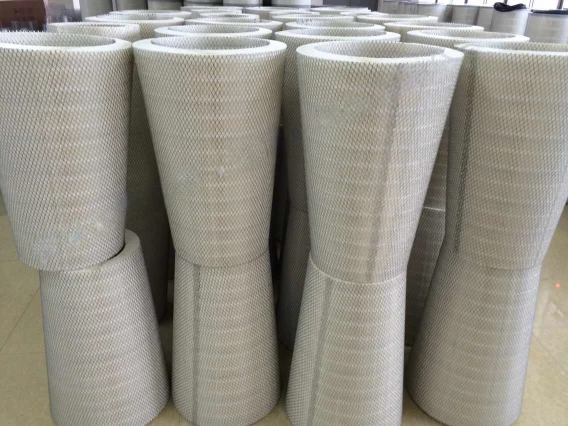 Tel:
+8618931101301
Tel:
+8618931101301
Oct . 21, 2024 19:37 Back to list
Optimizing Air Intake Filters for Turbine Performance and Efficiency
Understanding Turbine Air Intake Filters Importance and Functionality
Turbine air intake filters play a critical role in the performance and longevity of gas turbine engines, which are widely used in commercial aviation, industrial power generation, and even in marine applications. As air passes into the turbine, it must be free of contaminants that can cause damage or reduce efficiency. This article delves into the significance of turbine air intake filters, their working principles, and the considerations for maintenance and selection.
The Importance of Air Intake Filters
Air intake filters are essential for ensuring that the air entering the turbine is clean and devoid of harmful particles. These contaminants can include dust, sand, pollen, and other airborne pollutants. If these particles are allowed to enter the engine, they can lead to various problems such as
1. Abrasion Particles can wear down critical components of the turbine, particularly the blades, leading to increased maintenance costs and downtime. 2. Efficiency Loss Dirty air can disrupt the optimal combustion process, resulting in reduced engine performance and higher fuel consumption.
3. Failure In severe cases, large debris can cause catastrophic engine failures, posing safety risks and incurring substantial repair costs.
Given these potential issues, the air intake filter is a vital first line of defense for maintaining engine health and ensuring operational efficiency.
How Turbine Air Intake Filters Work
Turbine air intake filters typically consist of multiple layers of filtration media designed to capture different sizes of particles. The general working principle involves
1. Pre-filtration This initial stage captures larger particles, thereby reducing the load on subsequent filters. Some systems might employ wire mesh or other coarse materials for this purpose.
2. Main filtration This stage often uses high-efficiency particulate air (HEPA) filters or other specialized materials designed to capture finer particles, allowing only clean air to pass into the turbine.
3. Engine Protection The filtered air moves into the turbine, where it is mixed with fuel and ignited. The quality of this air can significantly impact combustion efficiency and turbine performance.
4. Monitoring and Maintenance Many modern systems are equipped with pressure sensors that monitor the difference in airflow before and after the filters. When the filters become clogged, airflow decreases, signaling the need for maintenance or replacement.
turbine air intake filters

Selecting the Right Filter
Choosing the right air intake filter for a gas turbine is crucial and should be based on several factors
- Engine Type Different engines may have varying requirements for filtration based on design, operational conditions, and manufacturer specifications.
- Operating Environment For turbines operating in sandy or dusty environments, filters with superior capabilities to capture fine particles are essential.
- Flow Rate The filter must support the required airflow for optimal engine performance. If the filter is too restrictive, it could cause a drop in engine performance.
- Maintenance Schedule Consideration should be given to how often filters can be changed or cleaned, as easy maintenance can lead to more reliable turbine operation.
Maintenance Best Practices
Regular maintenance of turbine air intake filters is just as important as the initial selection. Here are best practices to ensure effective filtration
- Regular Inspection Schedule routine inspections to assess the condition of air filters and identify any signs of clogging or damage.
- Cleaning and Replacement Implement a cleaning or replacement schedule based on the type of filter used and the level of environmental contamination.
- Use of Sensors Monitor filter performance using pressure sensors or indicators to ensure timely maintenance actions.
Conclusion
Turbine air intake filters are indispensable components that significantly influence the overall operational effectiveness of gas turbines. By ensuring the delivery of clean air, these filters protect engine components, enhance fuel efficiency, and ultimately improve safety and reliability. Therefore, understanding their importance, working principles, selection criteria, and maintenance practices is crucial for anyone involved in the operation or management of turbine systems. Proper care and attention to these filters can lead to noteworthy improvements in turbine performance and longevity, making them a worthy investment for any organization relying on turbine technology.
-
Working principle of high-efficiency dust filter elementNewsJun.26,2025
-
The truth about washable filters: Does repeated use really not affect efficiency?NewsJun.25,2025
-
Effect of humidity on the performance of activated carbon filter elementsNewsJun.24,2025
-
Material selection considerations for dust removal filter elements under high temperature conditionsNewsJun.23,2025
-
Cold knowledge of air filters: Why are some designed to be pleated?NewsJun.16,2025
-
Factory direct supply! High-precision air filter element wholesale and customizationNewsJun.12,2025

 Email:
Email:





